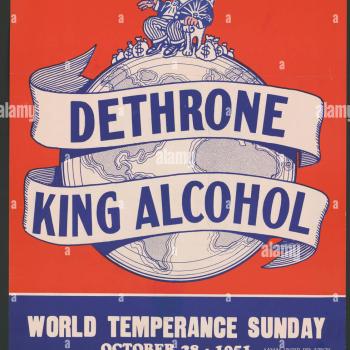 For good reason, Molly Worthen’s Apostles of Reason has enjoyed a lot of attention (Slate, Christian Century, National Review, Religion and American History blog, The Nation). It is a wonderfully provocative and ambitious book with a panorama of fascinating and diverse characters. As I point out in my review of the book over at Marginalia, it has several impressive virtues:
For good reason, Molly Worthen’s Apostles of Reason has enjoyed a lot of attention (Slate, Christian Century, National Review, Religion and American History blog, The Nation). It is a wonderfully provocative and ambitious book with a panorama of fascinating and diverse characters. As I point out in my review of the book over at Marginalia, it has several impressive virtues:
- It features clear argumentation. First, it argues that evangelicals have been preoccupied with a rational defense and efficient distribution of the gospel. Second, it contends that reason was not enough to bind very diverse evangelical groups together. The crisis of authority within the movement was, and is, very real.
- The narrative itself, which manages to cohere a clunky, disparate constellation of religious groups, is gripping. It is difficult to overstate how witty her writing is, which is quite an accomplishment given how potentially dry a study of evangelical intellectualism could be (and has been in the hands of less talented historians). Worthen grounds her sparkling prose in impeccable research. She demonstrates a considerable talent for marshaling apt illustrations and quotes from wide-ranging archival collections in support of broader arguments.
- The great contribution of Apostles of Reason, however, is its interpretive frame. The characters and institutions—the National Association of Evangelicals, Evangelical Theological Society, Christianity Today, and Fuller Seminary—are familiar enough if you have read any George Marsden or Joel Carpenter. But Worthen widens the lens to include groups on the periphery of the reformed neo-evangelical center. Consider the startling variety of evangelical figures and institutions sketched in Chapter Six alone: Southern California suburbanites, Jesus People, charismatic Episcopalians, Bob Jones University, Yonggi-Cho’s Assemblies of God megachurch in Seoul, and others. Though some remained marginal to the neo-evangelical project, they all were asking similar questions, considering the problem of intellectual authority in the modern world, and instituting rational methods in their work. And they did so in a broader religious and political world. One of the book’s true strengths is positioning evangelical conversations in the broader context of liberation theology, mainline Protestantism, fundamentalism, Catholicism, American political and cultural conservatism, and global religion. In fact, in my next post here at the Anxious Bench, I’ll focus on Worthen’s treatment of Mennonites, a group often not included in books on evangelicalism.
For all its virtues, Apostles of Reason is not entirely convincing. If there is much evidence to commend Worthen’s rationalization thesis, there is also much to temper it: Jesus People, charismatics, the “smells and bells” instincts of evangelicals who followed the liturgical ways of the Canterbury Trail, Majority World healings, spiritual warfare, and the “power evangelism” of John Wimber that “won converts not by rational argument, but by demonstrating God’s power through healing, prophecy, or other miraculous intervention.” Interestingly, many of these movements found a home at Fuller Seminary, the same institution that helped birth social-scientific church growth theory. So while evangelicals were increasingly driven by rational theological treatises of Carl Henry, they remained animated by the devotional passions of evangelists like Billy Graham.
In fact, for a person of his stature, Graham appears strikingly little in Worthen’s narrative. His relative obscurity in the book perhaps demonstrates the limits of scholarly stress on evangelical rationality. If “understanding the rise of the Christian Right in purely political terms . . . misses the heart of the story,” as the dust jacket rightly points out, so too can a focus on the evangelical mind. Indeed, what was it about the evangelical heart that made Graham, not Carl Henry, the heartbeat of the movement? Surely this, more than the ascent of reason or of the Religious Right, is the evangelical story.
For my take on what this means for the future of scholarship on evangelicalism, head on over to Marginalia for the full review.
















